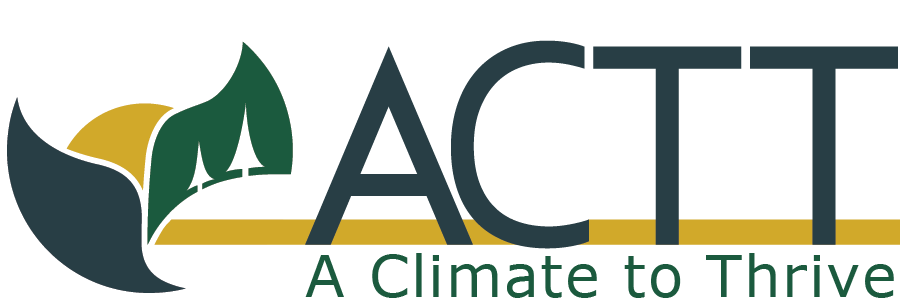Capacity Through Knowledge
As outlined in Section One, many community-driven or grassroots climate action groups start as a handful of concerned people; not necessarily experts or scientists, but community members who care. And this caring is the most important fuel for getting started. You might feel like you're not “qualified” to work on climate solutions because you’re not a scientist or energy or policy expert. However, the most important kind of knowledge is the one you already have: the lived knowledge of your community. While you can learn about policy or energy solutions, or consult with experts in those and other areas, knowledge of a community - of what resonates with the people in that community, of who the essential partners are, of what challenges and opportunities intersect with climate change, and of how work best moves forward - is the type of knowledge that can only be developed through time spent in that community.
You know your community. You know the places people gather, the local politics, the informal leaders, the issues people care about, and what folks are struggling with day to day. Maybe you’ve helped organize a school fundraiser, started a garden, shown up to town meetings, or just had conversations with your neighbors. This is all valuable knowledge as it’s the foundation of community-driven climate action.
That said, learning more about the kinds of solutions or changes you want to work on will be an important next step in building your capacity. The mini strategic planning reflection from Section One is designed to surface areas where your group has strengths and areas where you want to build more knowledge. You don’t need to learn everything at once, but getting familiar with the basics of the solution or issue you’re working on can give your group more confidence and clarity. Below are some ideas for how to build knowledge as a group:
Tap into local networks
Reach out to groups like ACTT’s Leads the Way Network (or other regional collaboratives). Many are happy to share tools, insights, or even offer peer mentorship.
Reach out to local service providers and experts
Maine has a wealth of resources available. Organizations like the Gulf of Maine Research Institute and the Island Institute can offer knowledge-building support, as can long-term community-driven climate organizations like A Climate to Thrive and the Center for an Ecology-Based Economy. The University of Maine and other local universities can sometimes offer expertise in different areas: for example, many resources are offered through the Mitchell Center at the University of Maine. The Community Resilience Partnership, run through the state, includes Regional Coordinators spread throughout the state that can sometimes offer specific areas of expertise.
Informal and formal mentors
Sometimes the easiest way to build knowledge is to learn from someone who’s done something similar. Consider inviting a local organizer, planner, or practitioner for an informal conversation with your group. Both A Climate to Thrive and the Center for an Ecology-Based Economy along with many others are often happy to come speak with other community-driven groups to help share knowledge and experience. You can also access more formal mentors through local or state programs such as the resources listed above under service providers.
Study
We’ve included a short list of accessible readings, case studies, and guides in the Resource section. Pick what feels most relevant and digestible, no need to become an expert overnight. There is also a plethora of information available on the internet; sometimes too much! Consider asking some local experts to point you towards specific and most-helpful online resources, as it can be easy to go down a rabbit-hole!
Skill-share within your group
Someone in your group might already know more than you think. Make space to share experiences, even if they’re not “technical.” These experiences could include anything from community gardening to organizing a town hall.
Remember: you don’t have to know everything to take action. Learning and doing can happen at the same time, as evidenced in this community story:
The York Energy Coaching Program
In York, Maine, a group of committed volunteers came together to launch a grassroots energy coaching program rooted in community support and climate action. Housed under York Ready for Climate Action—a local nonprofit working to build momentum around climate solutions—the program was created to meet a growing need: homeowners were overwhelmed by the complexity of energy upgrades and didn’t know where to begin.
The York Energy Coach Program offers one-on-one support to residents, connecting them with trained volunteers who help assess their homes, understand available options, and navigate each step of the process toward energy efficiency and electrification. The approach centers on relationship-building, trusted guidance, and community empowerment. Volunteers help translate technical details into actionable guidance and ensure that homeowners feel supported, not alone, when making big decisions about their homes.
To launch the pilot, the group received some funding from the Community Resilience Partnership. This helped cover early program costs and demonstrate a model that could be adapted in other towns. Coaches meet every two weeks to build skills and share updates. These regular meetings sometimes feature guest speakers offering practical knowledge that coaches can apply in the field.
Today, the program is growing steadily, driven by relationships, curiosity, and a shared sense of purpose. Coaches learn alongside residents, helping to demystify home energy upgrades and make climate action personal, practical, and achievable.
Resources





